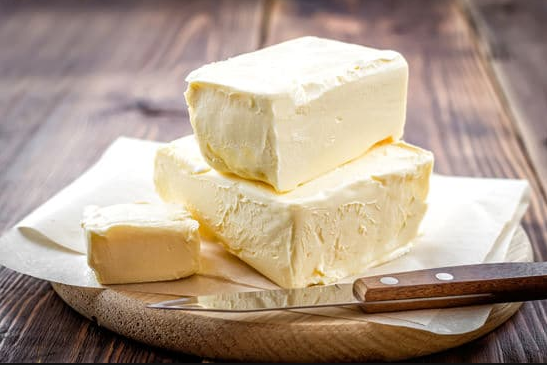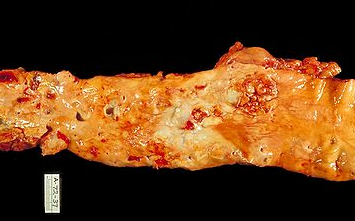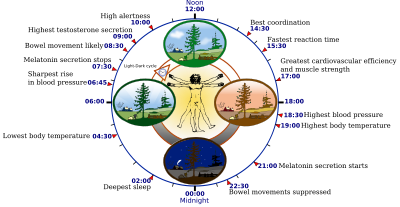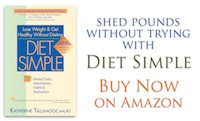Is Butter Good For You?
- At April 10, 2017
- By Katherine
- In Articles, News
 0
0
Butter is Back! And it’s even good for you? These declarations can be illustrated by the dizzying array of delicious butters now available: besides the old-fashioned American butters, you can easily find the extra rich Irish and French Butters, and a variety of premium, grass-fed, and organic farmers market butters extolled for their superiority, and with a premium price tag to match. Is this a food lover’s dream come true? Even some nutritionists have joined the bandwagon, and yours truly has been confused.
This seemingly good news may have started with the widely read earth shattering 2002 New York Times Magazine story, “What if it’s All Been a Big Fat Lie?” by Gary Taubes, featuring a big, fat, juicy piece of steak on the cover. More recently, Mark Bitman wrote a 2014 New York Times story covering a scientific study in the March 2014 Annals of Internal Medicine journal concluding that eating saturated fat, the so-called artery-clogging, demonic fat in butter, did not raise a person’s risk of heart disease. This exciting news, covered in just about every print and broadcast media outlet around the world, seemed to reverse decades of medical advice saying the opposite was true.
So, how do we hash out the truth?
This is an important question as one in every four deaths of Americans are from heart disease, so it’s a critical issue concerning the health of the majority of Americans – and my clients, who rely on me to get it right. After all, what’s more important than your health?
Upon exhaustive research, I’ve found the answer, interestingly, is not too different than conclusions made by Harvard scientist, Ancel Keys, and other respected scientists in the 1950s, 60s, and 70s: that the type of fat – not total fat – is responsible for the rise in heart disease because of its affect on blood cholesterol levels.
But how important is blood cholesterol level? A multitude of factors increase heart disease risk, such as calcification, inflammation, blood pressure, high triglycerides, diabetes, obesity, inactivity, smoking, family history, gender, and age. But, apparently, the correlation between high LDL(bad) cholesterol levels and heart disease has been well established and is still deemed significant to your risk of heart disease and your health. Conclusion: Keep LDL low (under 100) and HDL high (Over 40) to prevent heart disease risk.
And the most recent clinical study – the gold standard of scientific studies – has confirmed the worst (if you’re a butter lover, that is): Replacing the saturated fat in butter with unsaturated oils, not only raises HDL (good) cholesterol – which clears fat and reduces placque in the arteries – using oils instead of butter also reduces artery-clogging LDL (bad) cholesterol from the bloodstream. Conclusion: Use oil instead of butter to reduce heart disease risk. So, it seems the advice hasn’t changed since Ancel Keys discovered the superior health of Mediterraneans who used oil instead of butter.
In a recent Harvard School of Public Health’s analysis of the controversy, the scientists review decades of research showing the successful reduction in heart disease risk by doing things like replacing butter (high in saturated fat) with oil, replacing steak with salmon, and eating a plant-based diet based on fruits, vegetables and whole grains for the reduction of LDL cholesterol, the increase in HDL cholesterol, the resulting effect on lowering heart disease risk, and improving your overall health. Conclusion: “Butter is not back!” said Harvard’s Walter Willett.
So, what about those New York Times articles? Well… Caveat Emptor! Don’t believe everything you read, and consider the source (be sure the information comes from a peer-reviewed, scientific journal, and compare it to other established science).
To say this Swede, raised on cream and butter, is disappointed, is an understatement! But I still use luxurious butter sparingly, when I deem necessary!
And it’s a relief to know that all these years, helping my hundreds of clients lower their LDL and raise their HDL cholesterol levels by substituting butter with healthy oils and other lifestyle changes has not been a waste! WHEW! No rioting necessary 🙂
A New Recipe For Improving Seasonal Allergy Symptoms
- At March 06, 2017
- By Katherine
- In Articles, News
 0
0
My clients who suffer from seasonal allergies were hit hard this year – and earlier than usual. The warm February temperatures caused Washington’s flowering trees and shrubs to come out of their winter slumber gloriously. Our famed cherry trees and camellias are almost in full bloom. Even my hydrangeas’ buds are peaking out.
This beautiful display does not feel so beautiful for people with spring allergies. They often have symptoms, caused by the flowers’ pollen, which impact their quality of life: lack of sleep, reduced productivity at work or school, emotional stress and embarrassment…. and the medications designed to improve those symptoms, depending on the person, may be no better, and cause dry mouth, sleeplessness, and drowsiness. A new study set out to test if certain strains of beneficial probiotic bacteria would reduce symptoms and improve quality of life during allergy season for its sufferers.
The study, published in the American Journal of Clinical Nutrition, the first randomized, double blind, placebo-controlled trial – the gold standard of human research – testing this hypothesis, divided 178 allergy sufferers into two groups and tested them during spring allergy season for eight weeks. One group received the probiotic supplement*, the other received the placebo.
The study found the probiotic group experienced improved quality of life symptoms compared to the placebo group. That said, scientists are still working out which of the beneficial probiotic bacteria work best with individual allergens, when to start taking them, and which probiotic bacteria will react most positively with a person’s specific microbiota (the 100 million bacterial organisms in your digestive tract), as each person’s microbiota is different. They mentioned that starting probiotics at a younger age may be more effective, too.
In the meantime, I believe eating foods which naturally contain beneficial probiotic bacteria, such as yogurt, is the best solution for trying to reduce your allergy symptoms. In fact, I recommend eating yogurt every day! Though, I don’t recommend counting on supplements because, as of now, no probiotic supplements have passed the tests allowing them to make a health claim.
Here’s one of my favorite yogurt recipes developed by Georgetown resident, cookbook author, and my friend Najmieh Batmanglij, and found in my book, Diet Simple…
Najmieh Batmanglij’s Yogurt and Spinach Dip
*(Lactobacillus gasseri KS-13, Bifidobacterium bifidum G9-1, and Bifidobacterium longum MM-2 provided by Wakunaga of America Co Ltd)
Meal Timing’s Influence on Weight Loss
- At October 03, 2016
- By Katherine
- In Articles, News
 0
0
I’ve written a lot about how factors beyond calories – such as meal size, balance, and timing – affect your ability to lose weight and improve your health. A new study in The American Journal of Clinical Nutrition confirms what I’ve observed during the 20-plus years of my personalized nutrition counseling practice. And that is, having your larger meal at dinner or at lunch can make the difference between losing and not losing weight, even if the same food – and the same calories – are eaten.
This clinical trial – the gold standard type of study, because it controls all conditions so it can determine a cause and effect – took 80 randomly assigned healthy overweight or obese women and fed one group a larger meal at lunch and a smaller meal at dinner for twelve weeks. The second group was given the opposite condition: a smaller meal at dinner and a larger meal at lunch.
The groups experienced significantly different results. While both groups lost weight, the small dinner group lost more weight. They also achieved a lower fasting insulin and improved insulin resistance, a precurser to diabetes. Your insulin level is important for your health. Higher insulin levels correlate with a higher rate of heart attack and colon cancer – and possibly other cancers – as it is considered a “growth factor,” which increases cellular proliferation in the body.
“Light at night” has been my mantra since I first started working with clients, though it was poo poo’d by so many of my colleagues and doctors through the years. Well, science is finally starting to catch up with my recomendations!
Eating to Save the Planet
- At May 14, 2012
- By Katherine
- In Articles, News
 3
3
Katherine explaining “Farmers Markets: Good For You, Good For The Environment” Watch on CNN
For those of you who want to make a contribution toward saving the planet, you may want to consider changing what you eat. One simple way to do that? Buy locally and seasonally at your Farmers Market.
What you eat profoundly affects not only your health, but the environment, too. This is important news because when it comes to environmental issues and halting global warming, many of us feel overwhelmed and helpless. So it’s amazing that something as simple as making better food choices can reduce global warming by lowering greenhouse gases, saving land, and conserving diminishing water and energy supplies.
Your protein choice will make the most significant difference on the environment (and your health). Producing meat requires six to seventeen times more land than growing vegetable protein, 26 times more water. And producing vegetables is up to 50 times more energy efficient than meat production, according to a study in the American Journal of Clinical Nutrition.
Eating vegetable protein will also save your health. Decades of research has found that plants contain compounds (phytochemicals) with potent powers of healing. People who eat a plant-based diet are leaner, have less cancer, heart disease and diabetes.
But when eating more fruits and vegetables, it’s important to consider how and where they’re grown. Environmental resource conservation is reduced if food is transported long distances and grown in large industrial farms which specialize in only one or a few foods. Locally, organically produced food saves water, energy and encourages a region’s unique varieties of fruits and vegetables. Heirloom varieties, for example, have been passed down through generations, have natural resistance to pests, disease and are better able to tolerate local conditions without too much exra energy, pesticides or water.
How you can protect the environment through your food choices:
* Buy seasonally and locally at farm stands and farmers’ markets,
* Eat a plant-based diet,
* Reduce meat consumption,
* Use heirloom varieties, whenever possible,
* Buy organic whenever possible.
This article was excerpted from: The Journal of the American Dietetic Association 2007; 107: 1033 – 1043 “Position of the American Dietetic Association: Food and Nutrition Professionals Can Implement Practices to Conserve Natural Resources and Support Ecological Sustainability”














